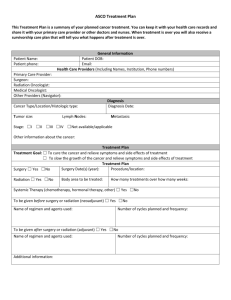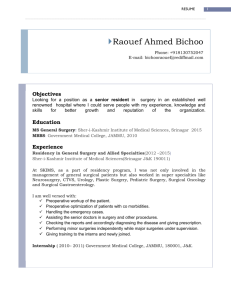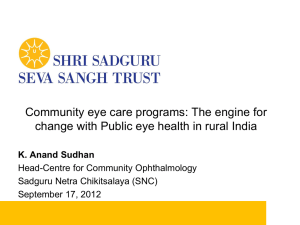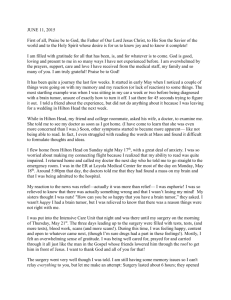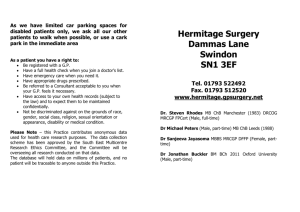Continued... - The University of Sydney
advertisement
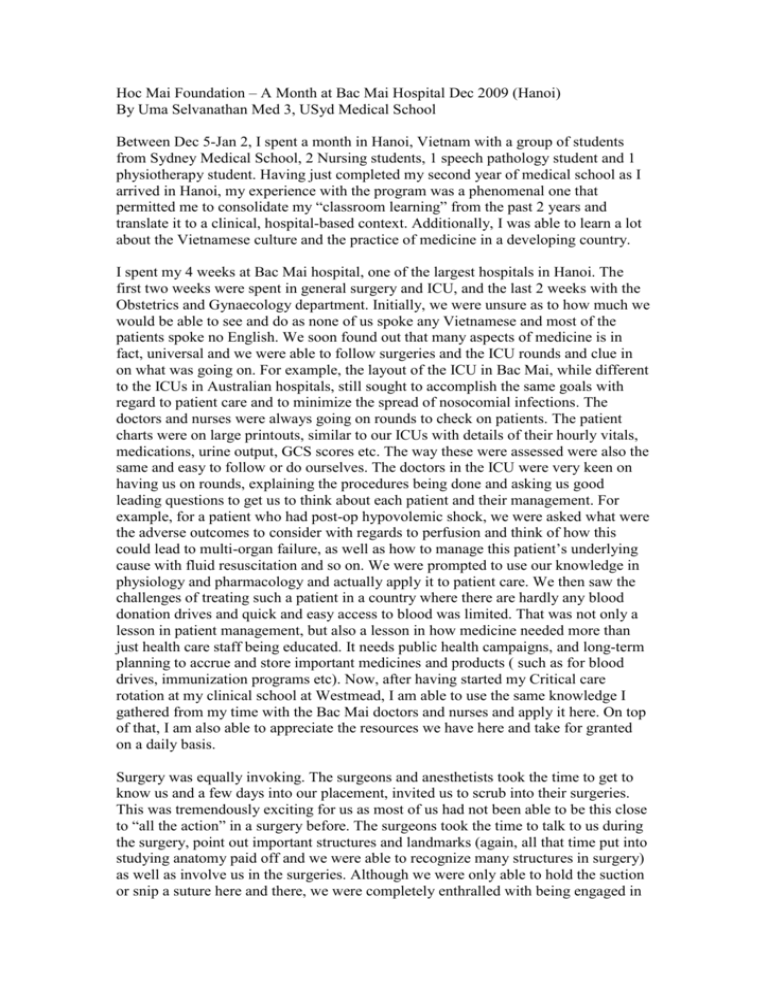
Hoc Mai Foundation – A Month at Bac Mai Hospital Dec 2009 (Hanoi) By Uma Selvanathan Med 3, USyd Medical School Between Dec 5-Jan 2, I spent a month in Hanoi, Vietnam with a group of students from Sydney Medical School, 2 Nursing students, 1 speech pathology student and 1 physiotherapy student. Having just completed my second year of medical school as I arrived in Hanoi, my experience with the program was a phenomenal one that permitted me to consolidate my “classroom learning” from the past 2 years and translate it to a clinical, hospital-based context. Additionally, I was able to learn a lot about the Vietnamese culture and the practice of medicine in a developing country. I spent my 4 weeks at Bac Mai hospital, one of the largest hospitals in Hanoi. The first two weeks were spent in general surgery and ICU, and the last 2 weeks with the Obstetrics and Gynaecology department. Initially, we were unsure as to how much we would be able to see and do as none of us spoke any Vietnamese and most of the patients spoke no English. We soon found out that many aspects of medicine is in fact, universal and we were able to follow surgeries and the ICU rounds and clue in on what was going on. For example, the layout of the ICU in Bac Mai, while different to the ICUs in Australian hospitals, still sought to accomplish the same goals with regard to patient care and to minimize the spread of nosocomial infections. The doctors and nurses were always going on rounds to check on patients. The patient charts were on large printouts, similar to our ICUs with details of their hourly vitals, medications, urine output, GCS scores etc. The way these were assessed were also the same and easy to follow or do ourselves. The doctors in the ICU were very keen on having us on rounds, explaining the procedures being done and asking us good leading questions to get us to think about each patient and their management. For example, for a patient who had post-op hypovolemic shock, we were asked what were the adverse outcomes to consider with regards to perfusion and think of how this could lead to multi-organ failure, as well as how to manage this patient’s underlying cause with fluid resuscitation and so on. We were prompted to use our knowledge in physiology and pharmacology and actually apply it to patient care. We then saw the challenges of treating such a patient in a country where there are hardly any blood donation drives and quick and easy access to blood was limited. That was not only a lesson in patient management, but also a lesson in how medicine needed more than just health care staff being educated. It needs public health campaigns, and long-term planning to accrue and store important medicines and products ( such as for blood drives, immunization programs etc). Now, after having started my Critical care rotation at my clinical school at Westmead, I am able to use the same knowledge I gathered from my time with the Bac Mai doctors and nurses and apply it here. On top of that, I am also able to appreciate the resources we have here and take for granted on a daily basis. Surgery was equally invoking. The surgeons and anesthetists took the time to get to know us and a few days into our placement, invited us to scrub into their surgeries. This was tremendously exciting for us as most of us had not been able to be this close to “all the action” in a surgery before. The surgeons took the time to talk to us during the surgery, point out important structures and landmarks (again, all that time put into studying anatomy paid off and we were able to recognize many structures in surgery) as well as involve us in the surgeries. Although we were only able to hold the suction or snip a suture here and there, we were completely enthralled with being engaged in the procedure and have a good, close look. As many Vietnamese patients present to the hospitals late, we were able to elicit and see many late-presentation clinical signs (jaundice, asterixis etc.) as well as the end products of surgery. One patient had 110 renal calculi, including a staghorn stone removed from one kidney! Again, we saw the universality in medicine as the theatre staff paused to do a “time out” in Vietnamese! It was saddening to see some patients who needed surgery unable to receive surgery as they could not afford it. It made us realize how fortunate we are to have access to the needed healthcare in a metropolitan, developed area like Sydney. It also spurred me to think of areas in Australia, such as very rural communities or Aboriginal communities that should have access to such healthcare but are not, and what needs to be done to help them. Other surgeries we got to see were mitral valve replacements, CABG (coronary artery bypass surgery), appendectomies, Caesarean section deliveries, laproscopic surgeries and many more. I was equally satisfied with my 2 weeks with the Obs and Gyn department. I spent a lot of time in the labour suite and saw the startling differences between the birth unit in Sydney hospitals and Bac Mai. All the Vietnamese women had to give birth on a supine position on a bed, partners or mothers were not allowed in the room with patients, and patients were not offered any pain relief such as epidurals due to cost! This is a stark contrast to the experience of many women at Sydney hospitals. However, they were given similar treatment with regard to ante-natal care, ultrasounds and post-natal care with a community nurse educating them on breastfeeding etc. On the whole, I truly enjoyed my time at the hospital and felt that I learnt a lot, which I am able to use even now in my rotations. I have also come away from this trip humbled by the compassionate medicine that I saw. Many doctors and nurses work with limited resources, very little pay and still go above and beyond to do the best they can for their patients and always strive to educate themselves. I also felt very welcomed by all the staff members I met, doctors, nurses and students. They were very hospitable and ensured that we felt comfortable. Dr Tuan and his colleague invited us to lunch on multiple occasions to experience Vietnamese food and also have a chat with us to make sure we were doing well in our new surroundings. I hope to return the kindness when we host Vietnamese doctors, nurses and students here in Sydney.
